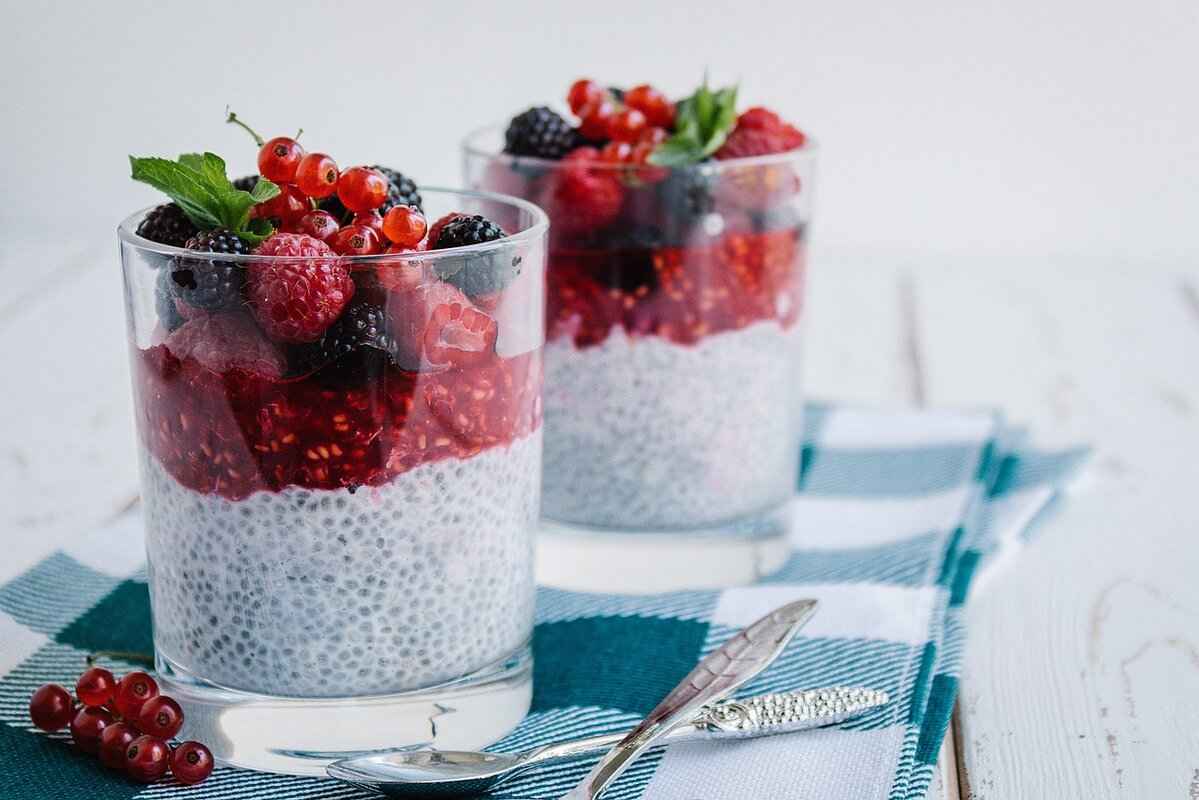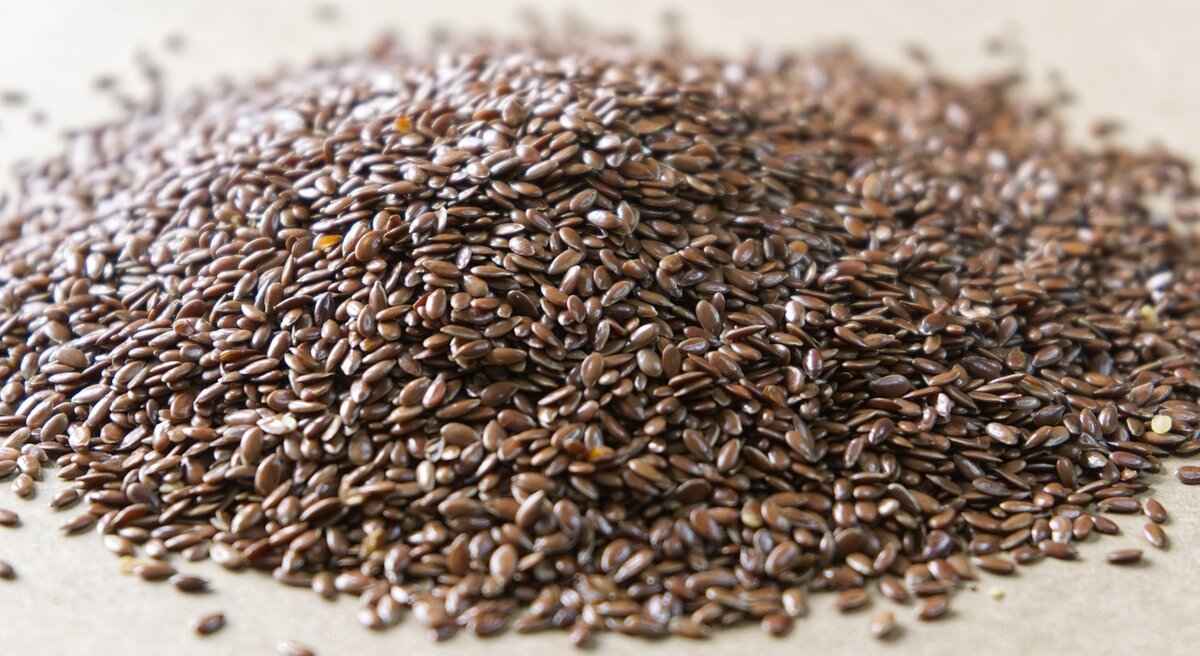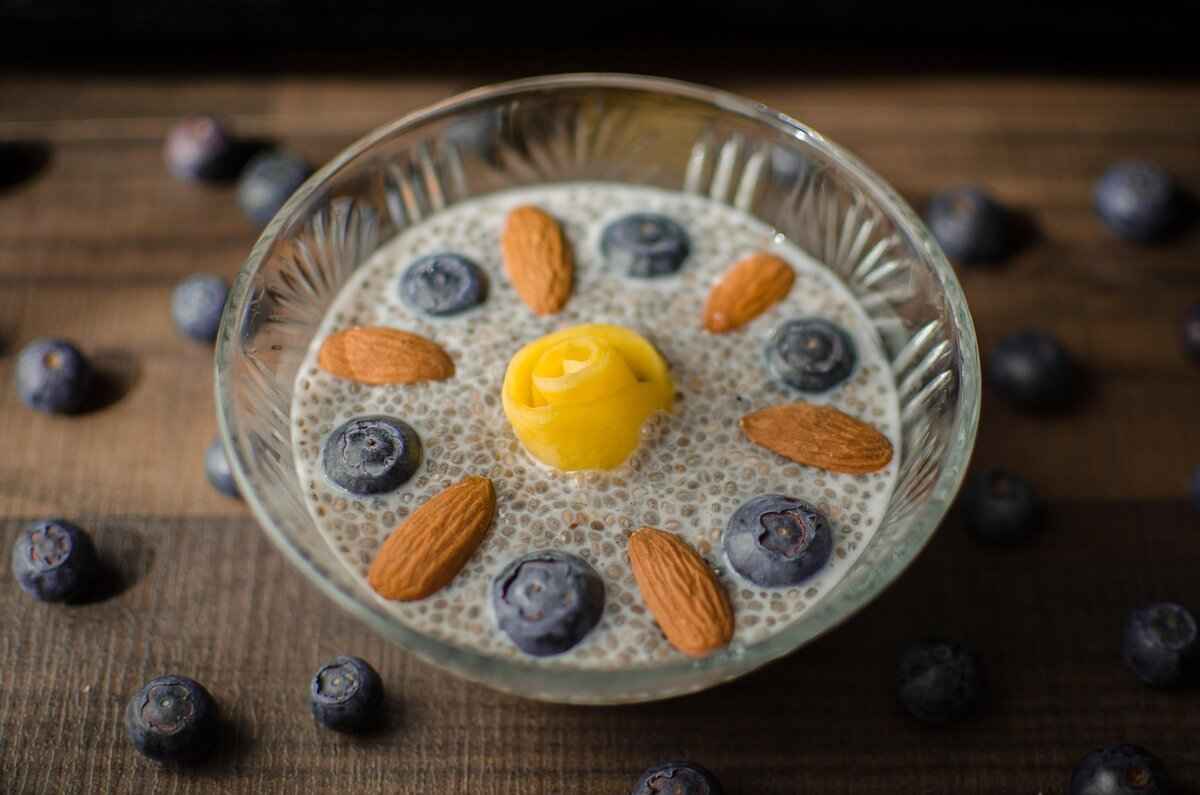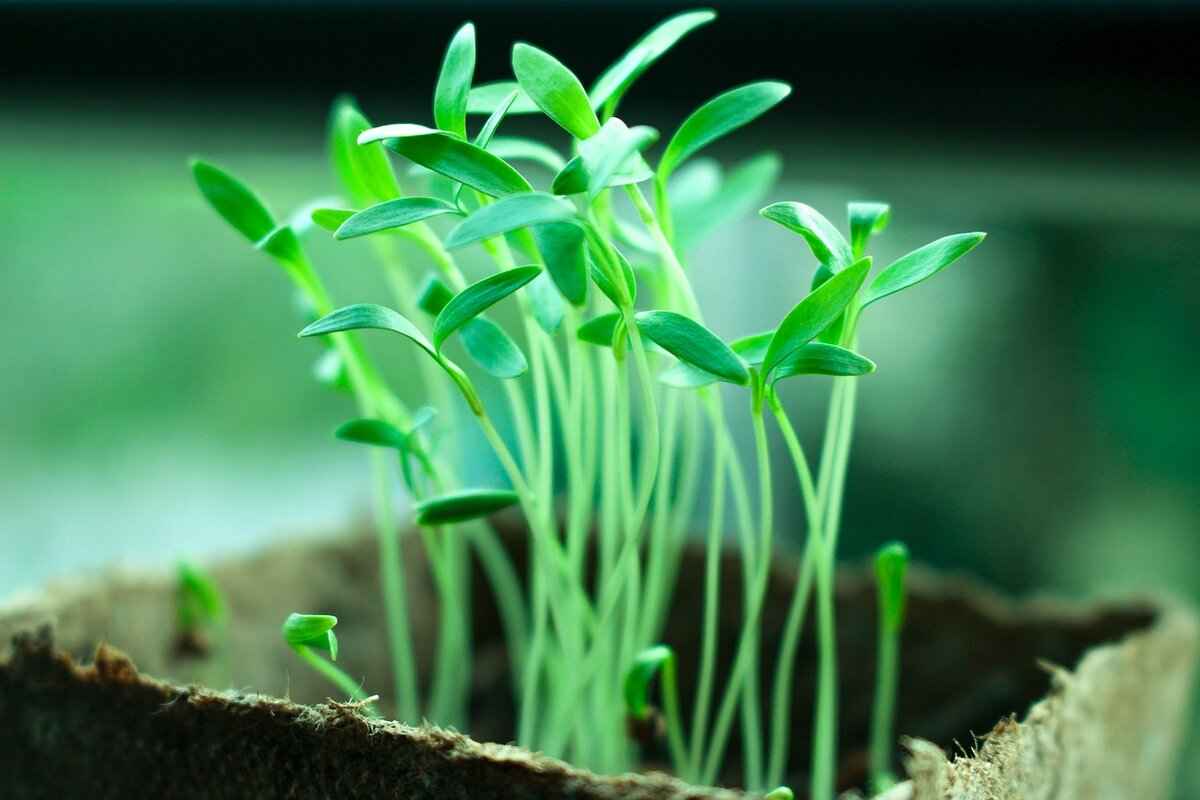Chia seeds have gained popularity in recent years as a superfood, and many consumers are curious about their availability and value at discount retailers like Aldi. This article delves into the nutritional benefits, cost-effectiveness, and overall value of chia seeds sold at Aldi, helping consumers determine if they are a worthy addition to their diet.
Chia seeds are tiny, black or white seeds derived from the Salvia hispanica plant, native to Central America. They are renowned for their impressive nutritional profile, which includes:
- Omega-3 Fatty Acids: Essential for heart health and brain function.
- Dietary Fiber: Aids in digestion and promotes a feeling of fullness.
- Protein: Contains all nine essential amino acids, making them a complete protein source.
- Vitamins and Minerals: Rich in calcium, magnesium, and phosphorus.
These nutrients contribute to numerous health benefits, including improved cardiovascular health, enhanced digestion, and increased energy levels.
Incorporating chia seeds into a balanced diet can significantly enhance nutrient intake. They can be easily added to smoothies, yogurt, oatmeal, and baked goods. Their versatility makes them a great addition to various dietary plans, including vegan and gluten-free diets. Furthermore, chia seeds can help in maintaining a healthy weight and improving overall well-being.
One of the most appealing aspects of chia seeds is their potential role in weight management. Their high fiber content can promote satiety, helping to control hunger and reduce overall calorie intake. This section examines how chia seeds can be an effective tool in weight loss strategies.
When soaked in liquid, chia seeds expand and form a gel-like consistency, which can help increase feelings of fullness. This phenomenon is backed by science, as the gel slows down the digestion process, leading to prolonged satiety.
Rich in dietary fiber, chia seeds can promote digestive health by aiding in regular bowel movements. They contribute to gut health and can help prevent constipation, making them an excellent addition to a healthy diet.
While chia seeds are generally safe for most individuals, they may pose risks for some. Potential allergies, digestive issues, and the importance of proper consumption guidelines should be considered. It is advisable to start with small amounts and increase gradually to avoid any gastrointestinal discomfort.
Price is a significant factor when evaluating food products. Aldi’s chia seeds are often priced lower than those at traditional grocery stores, making them a cost-effective choice for health-conscious consumers. This section compares Aldi’s chia seed prices to other retailers, highlighting their overall value.
Understanding the price differences between Aldi and other grocery stores can help consumers make informed choices. Typically, Aldi offers chia seeds at a price point that is 10-30% lower than competitors, making them an attractive option for budget-conscious shoppers.
Buying in bulk can lead to significant savings. Aldi occasionally offers bulk purchasing options for chia seeds, which can be beneficial for regular consumers. This section investigates the availability of such options and their potential benefits.
Chia seeds are incredibly versatile and can be incorporated into various dishes. They can be used in smoothies, oatmeal, salads, and even baked goods. This section provides practical tips and recipes for adding chia seeds to meals and snacks.
From chia seed puddings to energy bars, there are numerous ways to enjoy chia seeds. Here are a few popular recipes:
- Chia Seed Pudding: Combine chia seeds with almond milk and let it sit overnight for a delicious breakfast.
- Chia Smoothie: Blend chia seeds with fruits and yogurt for a nutritious drink.
- Chia Energy Bars: Mix chia seeds with oats, honey, and nuts for a healthy snack.
Chia seeds can serve as a vegan egg replacement in baking. To use chia seeds as an egg substitute, mix one tablespoon of chia seeds with three tablespoons of water and let it sit for about 15 minutes until it forms a gel. This option is not only beneficial for vegans but also adds extra nutrition to baked goods.

What Are Chia Seeds and Their Nutritional Benefits?
Chia seeds, derived from the Salvia hispanica plant, have gained popularity in recent years as a superfood due to their impressive nutritional profile. These tiny seeds are not only packed with essential nutrients but also offer numerous health benefits that can enhance your overall well-being. Understanding what chia seeds are and their nutritional benefits is crucial for anyone looking to improve their diet.
Nutritional Composition of Chia Seeds
- Omega-3 Fatty Acids: Chia seeds are one of the richest plant sources of omega-3 fatty acids, which are vital for heart health and reducing inflammation.
- High Fiber Content: With about 10 grams of fiber per ounce, chia seeds can help promote digestive health and regularity.
- Protein Source: Chia seeds contain approximately 4 grams of protein per ounce, making them an excellent addition to vegetarian and vegan diets.
- Rich in Antioxidants: These seeds are loaded with antioxidants that help combat oxidative stress and may reduce the risk of chronic diseases.
- Vitamins and Minerals: Chia seeds are a good source of essential nutrients such as calcium, magnesium, and phosphorus.
Incorporating chia seeds into your diet can provide a multitude of health benefits. Their high fiber content can help you feel fuller longer, which may assist in weight management. Additionally, the omega-3 fatty acids found in chia seeds contribute to cardiovascular health by lowering bad cholesterol levels.
How Chia Seeds Support Overall Health
Chia seeds are incredibly versatile and can be added to various dishes, enhancing both their nutritional value and flavor. They can be sprinkled on salads, blended into smoothies, or used in baking. When mixed with liquid, chia seeds absorb water and form a gel-like consistency, which not only aids in digestion but also helps create a satisfying texture in recipes.
Furthermore, the antioxidants in chia seeds help protect the body from free radicals, potentially lowering the risk of diseases such as diabetes and heart disease. Their anti-inflammatory properties can also contribute to better joint health and overall physical performance.
In summary, chia seeds are a nutrient-dense superfood that can be easily incorporated into daily meals. Their impressive array of health benefits, combined with their affordability and versatility, makes them a worthy addition to any diet. Understanding these benefits allows consumers to appreciate the value that chia seeds can bring to their health and wellness journey.

How Do Chia Seeds Fit into a Balanced Diet?
Chia seeds have gained popularity as a superfood, praised for their numerous health benefits and versatility in various diets. These tiny seeds, derived from the Salvia hispanica plant, are not only rich in nutrients but also play a significant role in enhancing overall dietary quality. In this section, we will explore how chia seeds can seamlessly fit into a balanced diet, enriching meals while supporting health goals.
Incorporating chia seeds into your meals can significantly boost your nutrient intake. These seeds are an excellent source of:
- Omega-3 Fatty Acids: Essential for heart and brain health.
- Dietary Fiber: Aids in digestion and promotes satiety.
- Protein: Supports muscle repair and growth.
- Vitamins and Minerals: Includes calcium, magnesium, and phosphorus.
Adding just a couple of tablespoons of chia seeds to your daily meals can help you meet your nutritional needs more effectively.
Chia seeds are incredibly versatile and can be incorporated into various dietary plans, including:
- Vegetarian and Vegan Diets: Chia seeds provide plant-based protein and omega-3s.
- Low-Carb Diets: Their high fiber content makes them an excellent choice for those looking to reduce carbohydrate intake.
- Gluten-Free Diets: Naturally gluten-free, chia seeds can be used in a variety of recipes.
Whether you are following a specific dietary regimen or simply seeking to enhance your overall nutrition, chia seeds can be a valuable addition.
The inclusion of chia seeds in your diet can contribute to several health benefits:
- Heart Health: The omega-3 fatty acids found in chia seeds can help lower blood pressure and reduce inflammation.
- Weight Management: The high fiber content promotes a feeling of fullness, which can aid in weight control.
- Digestive Health: Fiber supports regular bowel movements and overall gut health.
Regular consumption of chia seeds may help mitigate various health issues, making them a smart choice for anyone looking to improve their health.
Integrating chia seeds into your diet can be simple and enjoyable. Here are some practical ways to do so:
- In Smoothies: Add a tablespoon of chia seeds to your favorite smoothie for added nutrition.
- In Baking: Use chia seeds as an egg substitute in vegan baking by mixing them with water.
- In Salads: Sprinkle chia seeds on salads for a crunchy texture and nutritional boost.
- In Puddings: Create a delicious chia pudding by soaking seeds in almond milk overnight.
These simple additions can enhance the nutritional profile of your meals while providing a delightful texture.
In summary, chia seeds are a remarkable addition to any balanced diet. Their ability to enhance nutrient intake, complement various dietary plans, and promote overall health makes them a worthy investment in your health journey. With their versatility and numerous health benefits, incorporating chia seeds into your daily routine can lead to a more nutritious and satisfying diet.
Are Chia Seeds Suitable for Weight Management?
Chia seeds have gained significant attention in the health and wellness community, particularly for their potential role in weight management. Their high fiber content is often cited as a key factor in promoting feelings of fullness, which can be beneficial for those looking to manage their weight effectively. This section delves into how chia seeds may influence appetite control and support various weight loss strategies.
One of the most remarkable properties of chia seeds is their ability to absorb liquid and expand in size, forming a gel-like consistency. This gel formation can significantly enhance feelings of satiety when consumed. When chia seeds are soaked in water or other liquids, they can absorb up to 12 times their weight, which may help to curb hunger and reduce overall calorie intake.
Chia seeds are particularly rich in dietary fiber, with about 10 grams of fiber per ounce. Fiber is essential for healthy digestion and plays a critical role in weight management by:
- Promoting Fullness: High-fiber foods take longer to digest, leading to prolonged feelings of fullness.
- Reducing Caloric Intake: When combined with other foods, chia seeds can help reduce the overall calorie density of meals.
- Regulating Blood Sugar Levels: Fiber can slow the absorption of sugar, helping to maintain stable energy levels and reduce cravings.
Chia seeds are incredibly versatile and can easily be incorporated into various dietary plans, including:
- Keto Diet: Their low carbohydrate content makes them a great addition.
- Vegan Diet: They provide a plant-based source of omega-3 fatty acids and protein.
- Paleo Diet: Chia seeds are a natural, whole food option that fits well within this diet.
To maximize their benefits for weight management, consider adding chia seeds to:
- Smoothies: Blend them into your morning smoothie for added texture and nutrition.
- Overnight Oats: Mix chia seeds with oats and your choice of milk for a filling breakfast.
- Baked Goods: Use chia seeds as an egg substitute or sprinkle them on top of breads and muffins.
Research on chia seeds and weight management is still evolving. Some studies suggest that incorporating chia seeds into a diet may lead to modest weight loss, particularly when combined with a balanced diet and regular exercise. However, it’s essential to note that chia seeds alone are not a magic solution for weight loss. They should be part of a holistic approach that includes a variety of nutrient-dense foods and healthy lifestyle choices.
In conclusion, while chia seeds may support weight management efforts due to their high fiber content and ability to promote satiety, they should be consumed as part of a balanced diet. By incorporating chia seeds into meals thoughtfully, individuals may find them to be a valuable tool in their weight loss strategy.
How Do Chia Seeds Help with Satiety?
Chia seeds, often hailed as a superfood, have gained popularity for their numerous health benefits. One of the most notable advantages of chia seeds is their ability to promote satiety, which can be particularly beneficial for those looking to manage their weight. In this section, we will explore the science behind how chia seeds help increase feelings of fullness and practical applications for incorporating them into your diet.
When chia seeds are soaked in liquid, they absorb a significant amount of water, expanding to form a gel-like consistency. This unique property is primarily due to the high soluble fiber content in chia seeds, which can absorb up to 12 times their weight in water. As the seeds swell, they create a viscous gel that occupies space in the stomach, leading to a sensation of fullness. This phenomenon can be attributed to several factors:
- Increased Volume: The gel-like texture of soaked chia seeds adds bulk to meals without adding many calories. This can help reduce overall caloric intake, making it easier to adhere to a weight management plan.
- Slower Digestion: The presence of soluble fiber slows down the digestion process, which can prolong feelings of fullness. This helps prevent rapid spikes in blood sugar levels, leading to more stable energy levels throughout the day.
- Enhanced Nutrient Absorption: The gel formed by chia seeds can also aid in the absorption of nutrients, ensuring that your body receives the essential vitamins and minerals it needs while keeping you satisfied.
Incorporating chia seeds into your meals can be simple and enjoyable. Here are some practical applications:
- Chia Pudding: Mix chia seeds with your choice of milk or a dairy-free alternative, add a sweetener like honey or maple syrup, and let it sit overnight. The next day, you’ll have a delicious and filling pudding to enjoy.
- Smoothies: Add a tablespoon of chia seeds to your smoothies. They will not only enhance the texture but also keep you feeling full longer.
- Baking: Use chia seeds as a binding agent in recipes for energy bars or muffins. When mixed with water, they can replace eggs, adding both nutrition and satiety to your baked goods.
Research supports the idea that including chia seeds in your diet can contribute to improved satiety. A study published in the Journal of Nutrition found that participants who consumed chia seeds experienced a greater sense of fullness compared to those who did not. This suggests that chia seeds can be a valuable tool for those looking to control their appetite and make healthier food choices.
In summary, the gel-like consistency of chia seeds when soaked in liquid is a significant factor in their ability to enhance feelings of fullness. By incorporating chia seeds into various meals, individuals can leverage this natural appetite suppressant to support their weight management goals. Whether you enjoy them in puddings, smoothies, or baked goods, chia seeds offer a simple and effective way to increase satiety and promote overall health.
Can Chia Seeds Support Healthy Digestion?
Chia seeds, derived from the Salvia hispanica plant, have gained popularity as a superfood, particularly for their numerous health benefits. Among these, their ability to support healthy digestion is noteworthy. This section delves into how chia seeds contribute to gut health and regularity, making them a valuable addition to your diet.
Rich in dietary fiber, chia seeds contain both soluble and insoluble fiber, which play crucial roles in digestive health. Soluble fiber absorbs water, forming a gel-like substance that helps to slow digestion and regulate blood sugar levels. Insoluble fiber, on the other hand, adds bulk to stool and aids in its passage through the digestive tract. This combination ensures that chia seeds can effectively support a healthy digestive system.
Regular consumption of chia seeds can lead to improved bowel regularity. The high fiber content helps to prevent constipation by promoting smooth movement through the intestines. When soaked in liquid, chia seeds expand and create a gel-like consistency, which can help to ease the passage of stool. This natural laxative effect is particularly beneficial for individuals who struggle with irregular bowel movements.
- Prebiotic Properties: Chia seeds act as a prebiotic, feeding the beneficial bacteria in the gut. A healthy gut microbiome is essential for overall digestive health and can improve nutrient absorption.
- Anti-inflammatory Effects: The omega-3 fatty acids present in chia seeds have anti-inflammatory properties that can help reduce inflammation in the gut, potentially alleviating symptoms of conditions like IBS (Irritable Bowel Syndrome).
- Hydration: When chia seeds are soaked, they absorb water and can help keep the digestive system hydrated, which is vital for maintaining regular bowel movements.
Incorporating chia seeds into your daily meals is simple and versatile. Here are a few practical ways to enjoy them:
- Chia Pudding: Mix chia seeds with almond milk or yogurt and let them sit overnight. Add fruits and nuts for a nutritious breakfast.
- Smoothies: Blend chia seeds into your favorite smoothie for an added fiber boost.
- Baking: Use chia seeds as an egg substitute in baking by mixing them with water to create a gel-like consistency.
To reap the digestive benefits of chia seeds, it’s important to consume them in moderation. A typical serving size is about 1 to 2 tablespoons per day. However, it’s essential to increase your intake gradually to allow your digestive system to adjust to the higher fiber content.
While chia seeds are generally safe for most individuals, it’s crucial to drink plenty of water when consuming them, especially if you’re eating them dry. This prevents potential digestive discomfort and ensures they can expand properly in your stomach.
In summary, chia seeds are an excellent addition to a diet focused on enhancing digestive health. Their rich fiber content, prebiotic properties, and versatility make them a valuable superfood for those looking to improve gut health and maintain regularity.
What Are the Health Risks of Consuming Chia Seeds?
Chia seeds are often celebrated as a superfood due to their numerous health benefits, but like any food, they come with certain risks. Understanding these potential health concerns is crucial for those considering adding chia seeds to their diet.
While rare, some individuals may experience allergic reactions to chia seeds. Symptoms can range from mild to severe and may include:
- Rashes or skin irritation
- Swelling of the face or throat
- Difficulty breathing
If you have a history of allergies to sesame seeds or other similar seeds, it’s advisable to consult with a healthcare professional before consuming chia seeds.
Chia seeds are rich in dietary fiber, which can be beneficial for digestive health. However, for some individuals, especially those not accustomed to high-fiber diets, consuming chia seeds may lead to digestive discomfort. Common issues include:
- Bloating
- Gas
- Diarrhea or constipation
To minimize these risks, it is recommended to start with a small amount of chia seeds and gradually increase the intake while ensuring adequate hydration.
To safely incorporate chia seeds into your diet, consider the following guidelines:
- Hydration: Always soak chia seeds in water or another liquid before consumption. This helps prevent them from expanding in the digestive tract, which can lead to discomfort.
- Moderation: Aim for a daily intake of 1 to 2 tablespoons (15-30 grams) of chia seeds to reap the benefits without overloading your digestive system.
- Consultation: If you have existing health conditions, particularly gastrointestinal disorders, consult with a healthcare professional to determine an appropriate amount for your individual needs.
Chia seeds may interact with certain medications, particularly those that affect blood sugar levels or blood pressure. If you are on medication for diabetes or hypertension, consult your doctor before adding chia seeds to your diet to ensure there are no adverse effects.
In summary, while chia seeds are a nutrient-dense addition to many diets, it is essential to be aware of potential health risks, including allergies and digestive issues. By following proper consumption guidelines and consulting with healthcare professionals when necessary, you can enjoy the benefits of chia seeds while minimizing any risks.

Are Aldi’s Chia Seeds Competitive in Price?
When it comes to grocery shopping, price is often a crucial factor that influences consumer decisions. This is especially true for health-conscious shoppers looking to incorporate superfoods like chia seeds into their diets. In this section, we will delve into how Aldi’s prices for chia seeds compare to those at other retailers and explore the overall value they offer to consumers.
How Do Aldi’s Prices Compare to Other Stores?
Aldi has gained a reputation for offering affordable products, and their chia seeds are no exception. To provide a comprehensive comparison, we analyzed the prices of chia seeds at popular grocery chains including Walmart, Target, and Whole Foods. On average, Aldi’s chia seeds are priced significantly lower than those found at these competitors. For instance, while Walmart may sell a 12-ounce bag for around $5.99, Aldi offers a similar product for just $3.99. This price difference can add up, especially for regular consumers of chia seeds.
| Store | Price for 12 oz Chia Seeds |
|---|---|
| Aldi | $3.99 |
| Walmart | $5.99 |
| Target | $6.49 |
| Whole Foods | $7.99 |
This price advantage makes Aldi a compelling choice for those looking to stock up on chia seeds without breaking the bank. However, it is essential to consider not just the price but also the quality and sourcing of the seeds.
Are There Any Bulk Purchase Options at Aldi?
In addition to competitive pricing, Aldi often provides bulk purchase options that can lead to even greater savings. While not every Aldi location may carry chia seeds in bulk, many do offer larger bags at a reduced per-ounce price. This is particularly beneficial for consumers who incorporate chia seeds into their daily meals, such as smoothies, oatmeal, or baked goods. Buying in bulk can also reduce the frequency of shopping trips, which is a plus for busy individuals.
What About Quality and Sourcing?
While Aldi’s chia seeds are priced attractively, it is crucial to evaluate the quality of the product. Aldi sources its chia seeds from reputable suppliers, ensuring that they meet industry standards for nutritional value and safety. This commitment to quality, combined with their low prices, positions Aldi as a strong contender in the market for health-focused consumers.
Moreover, many consumers appreciate Aldi’s transparency regarding product sourcing and ingredient lists, which can enhance trust in the brand. By offering chia seeds that are both affordable and of decent quality, Aldi has made it easier for more people to incorporate this nutritious superfood into their diets.
In conclusion, Aldi’s chia seeds not only provide a cost-effective option for consumers but also maintain a level of quality that is competitive with other retailers. For those looking to enjoy the health benefits of chia seeds without overspending, Aldi stands out as a viable choice.
How Do Aldi’s Prices Compare to Other Stores?
When it comes to grocery shopping, understanding price differences can significantly influence consumer choices. Price comparison is essential for savvy shoppers looking to maximize their budgets. In this section, we delve into how Aldi’s prices for various products, including chia seeds, stack up against those of other grocery stores.
Aldi is renowned for its low prices, often attracting budget-conscious shoppers. To illustrate this, we will compare the prices of chia seeds at Aldi with those at major competitors such as Walmart, Kroger, and Whole Foods. For instance, a 12-ounce bag of chia seeds at Aldi typically costs around $4.99, while the same product at Walmart may be priced at $5.49. This price difference of $0.50 might seem minimal at first glance, but when purchasing multiple bags, the savings can add up significantly.
Aldi employs a unique pricing strategy that includes a limited selection of private-label products. This approach allows them to keep costs low while maintaining quality. In contrast, other grocery stores often have a broader range of brands, which can lead to higher prices due to increased competition and marketing costs. Consumers should consider whether the variety offered at other stores justifies the higher prices.
While Aldi’s prices are generally lower, it is essential to consider additional factors such as membership fees or loyalty programs offered by competitors. For example, stores like Costco require a membership fee but provide bulk pricing that can lead to savings over time. Conversely, Aldi does not have such fees, making it an attractive option for one-time or infrequent shoppers.
Another aspect to consider is seasonal promotions. Many grocery stores run sales and discounts that can temporarily lower prices. Aldi, however, tends to offer consistent low prices year-round without the fluctuation seen at other retailers. Shoppers should keep an eye on weekly ads to identify when competitors may have special deals that could rival Aldi’s prices.
Ultimately, the choice between Aldi and other grocery stores may come down to personal preference. Some consumers prioritize organic options or brand loyalty, which can lead them to choose stores like Whole Foods despite higher prices. Others may focus solely on cost, making Aldi their go-to shopping destination. Understanding the value proposition of each store can empower consumers to make informed decisions based on their unique needs.
In summary, Aldi’s competitive pricing structure offers significant advantages for budget-conscious shoppers. By comparing prices and evaluating the overall value, consumers can make choices that align with their financial goals and dietary preferences. Whether it’s the affordability of chia seeds or other grocery items, Aldi continues to be a strong contender in the grocery market.
Are There Any Bulk Purchase Options at Aldi?
When it comes to saving money on groceries, buying in bulk is a strategy that many consumers consider. This approach can lead to significant savings, especially on items that are frequently used, such as chia seeds. In this section, we will explore whether Aldi offers bulk purchasing options for chia seeds and the potential benefits of such purchases.
Aldi, known for its competitive pricing and no-frills shopping experience, has become a go-to destination for budget-conscious shoppers. While they typically offer products at lower prices compared to other retailers, the question remains: Does Aldi provide bulk options for chia seeds?
As of now, Aldi does not consistently offer chia seeds in bulk packaging. However, they do sell chia seeds in reasonably sized packages that can still provide good value for consumers. Purchasing multiple bags at once can be an effective way to stock up, especially if you regularly incorporate chia seeds into your diet. When comparing prices, it is essential to consider the cost per ounce, as this will help determine if you are truly getting a bargain.
| Store | Price per Pound | Bulk Options |
|---|---|---|
| Aldi | $4.99 | No |
| Walmart | $5.49 | Yes |
| Whole Foods | $6.99 | Yes |
Benefits of Buying Chia Seeds in Bulk
- Cost Savings: While Aldi may not offer bulk packaging, buying multiple smaller packages can still be more economical than purchasing single bags from other retailers.
- Convenience: Having a larger supply of chia seeds on hand means you can easily add them to your meals without needing to run to the store frequently.
- Reduced Waste: Buying in bulk can help minimize packaging waste, making it an environmentally friendly option.
Although Aldi may not have a dedicated bulk option for chia seeds, it is still possible to find them at a reasonable price. Consumers looking to maximize their savings should consider purchasing chia seeds in larger quantities whenever possible, whether from Aldi or other retailers that offer bulk purchasing.
In conclusion, while Aldi’s chia seed offerings may not include bulk options, they still provide a cost-effective choice for health-conscious consumers. By understanding the pricing and exploring various purchasing strategies, shoppers can enjoy the benefits of chia seeds without breaking the bank.

How to Use Chia Seeds in Everyday Recipes?
Chia seeds are not just a trendy superfood; they are incredibly versatile and can be effortlessly integrated into a variety of meals and snacks. This section will provide you with practical tips and delightful recipes to make the most of chia seeds in your daily diet.
Chia seeds are a fantastic source of omega-3 fatty acids, fiber, and protein, making them an excellent addition to any meal. Their unique ability to absorb liquid and form a gel-like consistency not only enhances the texture of dishes but also helps to promote satiety. Below are some easy ways to incorporate chia seeds into your everyday recipes.
- Add to Smoothies: Blend a tablespoon of chia seeds into your favorite smoothie for an extra nutritional boost.
- Mix into Yogurt: Stir chia seeds into yogurt or cottage cheese for added texture and health benefits.
- Top Your Salads: Sprinkle chia seeds over salads for a crunchy topping that enhances both flavor and nutrition.
- Use in Baking: Incorporate chia seeds into muffin or bread recipes for added fiber and protein.
Here are a few popular recipes that showcase the versatility of chia seeds:
- Chia Seed Pudding: Combine 1/4 cup of chia seeds with 1 cup of almond milk, add a sweetener of your choice, and let it sit in the fridge overnight. In the morning, top with fruits and nuts for a delicious breakfast.
- Chia Fresca: Mix 1 tablespoon of chia seeds with 1 cup of water and a squeeze of lemon or lime juice. Let it sit for 10 minutes, then enjoy a refreshing drink packed with nutrients.
- Chia Seed Jam: Mash a cup of your favorite fruit and mix it with 2 tablespoons of chia seeds. Let it sit for about 30 minutes until it thickens. Spread it on toast or use it as a topping for desserts.
For those following a vegan diet or looking to reduce their egg consumption, chia seeds can serve as an excellent egg substitute in baking. To replace one egg, mix 1 tablespoon of chia seeds with 2.5 tablespoons of water. Allow the mixture to sit for about 5-10 minutes until it becomes gelatinous. This not only binds ingredients together but also adds a nutritional boost to your baked goods.
Incorporating chia seeds into your meals is not only easy but also enhances the overall nutritional profile of your diet. With their numerous health benefits and versatility, chia seeds are a worthy addition to your pantry.
What Are Some Popular Chia Seed Recipes?
Chia seeds are a remarkable ingredient that can elevate a variety of dishes, making them not only nutritious but also delightful to the palate. Their unique ability to absorb liquid and form a gel-like consistency allows for creative culinary applications. Below, we explore a selection of popular recipes that highlight the versatility of chia seeds, from breakfast to dessert.
- Chia Seed Pudding: Combine 1/4 cup of chia seeds with 1 cup of almond milk and a sweetener of your choice. Let it sit overnight in the fridge. In the morning, top with fresh fruits and nuts for a wholesome breakfast.
- Chia Seed Smoothie: Blend 1 banana, 1 cup of spinach, 1 tablespoon of chia seeds, and 1 cup of coconut water. This refreshing drink is packed with vitamins and minerals, perfect for a morning boost.
- Chia Energy Balls: Mix 1 cup of oats, 1/2 cup of nut butter, 1/4 cup of honey, and 2 tablespoons of chia seeds. Roll into balls and refrigerate for a quick, energizing snack.
- Chia Seed Crackers: Combine 1 cup of chia seeds, 1/2 cup of water, and your favorite seasonings. Spread the mixture on a baking sheet and bake at 350°F (175°C) for 20 minutes for a crunchy snack.
- Chia Seed Salad Dressing: Whisk together 1/4 cup of olive oil, 2 tablespoons of apple cider vinegar, 1 tablespoon of chia seeds, and seasonings. This dressing adds a nutritious twist to any salad.
- Chia Seed Tacos: Mix cooked lentils with spices and chia seeds as a filling for tacos. This protein-packed meal is both satisfying and healthy.
- Chocolate Chia Seed Pudding: Blend 1/4 cup of chia seeds with 1 cup of almond milk, 2 tablespoons of cocoa powder, and a sweetener. Refrigerate and enjoy a rich, guilt-free dessert.
- Chia Seed Fruit Parfait: Layer chia pudding with yogurt and fresh fruits in a glass for a visually appealing and delicious dessert.
Incorporating chia seeds into your meals not only enhances the nutritional profile but also adds texture and flavor. Their versatility makes them a fantastic ingredient for a wide range of recipes. Whether you’re looking for a quick breakfast, a healthy snack, or a delightful dessert, chia seeds can fit seamlessly into your culinary creations.
Can Chia Seeds Be Used as an Egg Substitute?
Chia seeds have gained popularity in the culinary world, particularly among those seeking plant-based alternatives in their cooking and baking. One of the most notable uses of chia seeds is as a vegan egg substitute. This section delves into how to effectively use chia seeds for this purpose, highlighting the benefits and practical applications.
To use chia seeds as an egg substitute, the process is simple and straightforward. Here’s how you can do it:
- Measure: Take 1 tablespoon of chia seeds.
- Mix: Combine the chia seeds with 2.5 tablespoons of water.
- Let it Sit: Allow the mixture to sit for about 10-15 minutes. During this time, the chia seeds will absorb the water and form a gel-like consistency.
- Use: Once the mixture has thickened, it can be used as a replacement for one egg in your baking recipes.
Utilizing chia seeds in place of eggs offers numerous advantages:
- Vegan-Friendly: Chia seeds provide a plant-based option for those adhering to vegan diets or those with egg allergies.
- Nutritional Boost: Chia seeds are rich in omega-3 fatty acids, fiber, and protein, enhancing the nutritional profile of baked goods.
- Moisture Retention: The gel-like consistency of chia seeds helps retain moisture in baked products, resulting in a moist and tender texture.
- Easy to Use: The preparation of chia seed gel is quick and requires minimal ingredients, making it a convenient option for busy bakers.
Chia seeds can be used as an egg substitute in a variety of recipes, including:
- Pancakes: Enhance the fluffiness and moisture of your pancake batter.
- Muffins: Achieve a delightful texture while adding nutritional value.
- Cookies: Create chewy and delicious cookies without the need for eggs.
- Breads: Improve the moisture content and binding in homemade bread.
While chia seeds are an excellent egg alternative, there are a few considerations to keep in mind:
- Flavor: Chia seeds have a mild, nutty flavor that generally does not overpower recipes. However, it’s essential to consider this in flavor-sensitive dishes.
- Texture: The gel-like consistency may alter the texture of certain recipes, so it’s advisable to test with small batches first.
- Hydration: Since chia seeds absorb water, it’s crucial to adjust the liquid content in your recipes accordingly.
In summary, chia seeds are a versatile and nutritious egg substitute that can enhance your baking while catering to dietary restrictions. By following simple preparation methods and being mindful of recipe adjustments, you can enjoy the benefits of chia seeds in your favorite dishes.
Frequently Asked Questions
- What are chia seeds?
Chia seeds are tiny, nutrient-rich seeds from the Salvia hispanica plant. They are packed with omega-3 fatty acids, fiber, protein, and essential vitamins, making them a powerful superfood for your diet.
- How can I incorporate chia seeds into my diet?
You can easily add chia seeds to smoothies, oatmeal, yogurt, or even baked goods. They can also be used to make delicious puddings or as a thickening agent in soups and sauces!
- Are there any health risks associated with chia seeds?
While chia seeds are generally safe for most people, some may experience digestive issues if consumed in large quantities. It’s always best to start with a small amount and drink plenty of water.
- How do Aldi’s chia seed prices compare to other stores?
Aldi typically offers competitive prices on chia seeds compared to other grocery retailers, making them a budget-friendly option for health-conscious shoppers.
- Can chia seeds help with weight management?
Yes, chia seeds can aid in weight management due to their high fiber content, which promotes feelings of fullness and helps control appetite.
- Can chia seeds be used as an egg substitute in recipes?
Absolutely! When mixed with water, chia seeds form a gel-like substance that can replace eggs in baking, making them a great option for vegan recipes.















